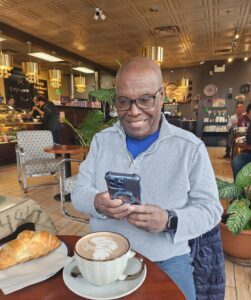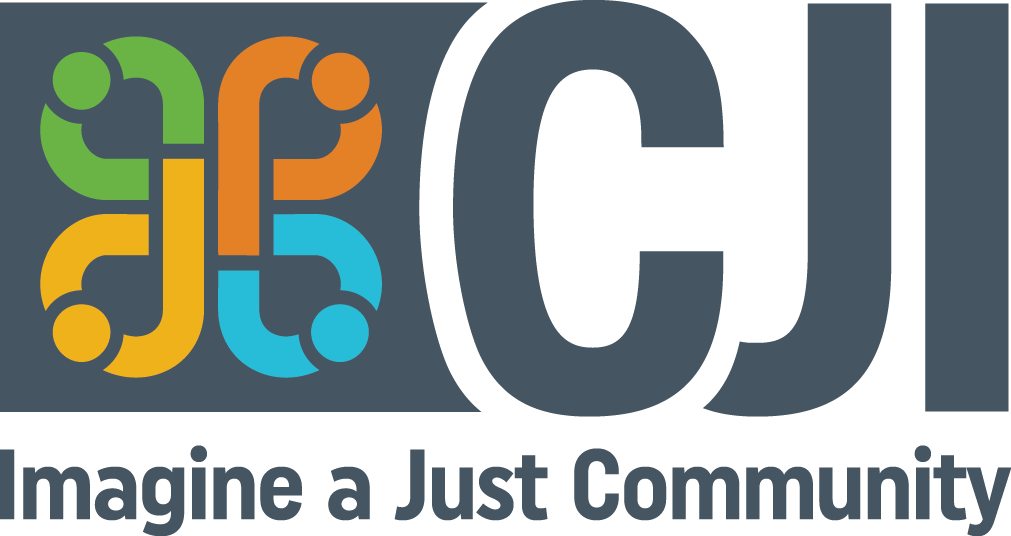Reflections from Community Member Ben Chery On Volunteering
Reflections from Community Member Ben Chery On Volunteering

Co-mediator Ben Chery volunteers with CJI so he can “do little things with big heart.” A lawyer by profession, Ben says, “When I started to volunteer at CJI, I learned about nuance. I had an idea about life, that you toe the line and follow the policy—I even wrote policies for work.” Through his experiences with CJI’s Mediation program Ben’s whole perspective changed. “I learned about the space between black and white, all the gray that exists between.” He also learned to make room for the human in each of us, rather than judge them. “Mediation isn’t about agreeing, it is about listening and growing our understanding of where someone is and how powerful it is to support someone, to coach them to find their own solutions.”
Ben says:
My first co-mediation experience was with Ryan McTavish, and it was a positive one. It was a jump in and let’s learn to swim together experience. He assured me we didn’t need all the answers. He included me in questions and progressed with me. This mentorship and co-mediation supported me to learn as I went.
As a mediator, I found out that if you listen, you can understand. We can get curious with people and offer people other perspectives. Peace is as individual as people are. It is bringing people back to what peace is for them and between them.
Ben has been a CJI co-mediator for 5 years. He wishes he understood sooner the difference between the concept of “I am not lying” and “I am telling the truth.”
He says:
Information can be framed to solicit sympathy. These moments require me to listen more deeply to [people in mediation], this is a part of where they are at. I listen to their words, expressions, bodies, and what is under the story they are sharing. The point isn’t my sympathy, that would get in the way. The point is to empower them back into their own feelings and to support them in deeper understanding of a situation.
While Ben recognizes the importance of not being swayed emotionally by people in mediation, he says there is room for heart.
For the mediator, we have a heart and a responsibility. The heart is to help you bring yourself to the place of being with another. We don’t blame and judge, this isn’t our role. We don’t decide or direct. We talk about consequences, feelings, and possibilities. The focus is to come to deeper understanding and to empower toward peace. As a mediator, you don’t bring your solution. The deeper change, a necessary part, is for the people directly impacted to come up with response(s).
You don’t assign blame… that closes the reflection process and makes less room for people to explore their experiences for themselves. This requires keeping your feelings and perceptions in check as a mediator. My feelings and perceptions are not facts, and it isn’t about me. This can be hard to learn.
Silence is good in mediation. If you keep your feelings to yourself, your silence can go far. Most people haven’t had time to reflect on their experience. This is part of the process, to reflect and to emerge with more perspective.
Part of our role as co-mediators is to reflect with participants, to help them see more of their own experience and actions and to imagine other ways we could do things. For example, if an incident started because someone honked their horn at you. We can explore with someone what else they could do when someone honks a horn, because it is likely to happen again.
People can change if they have the right tools. When you make a mistake, there are consequences. This is a point of acceptance. It is the tools to bring us to the place that we can respond to the consequences in healing ways.
Ben’s fresh perspective spills into the rest of his life.
As a migrant and black person, I notice there can be clashes between learning and culture and between old and new ways of being. I came to Canada from Haiti in my 20’s. I had to make a mental leap to accept other ways of being. I cannot afford for myself or my kids to only have the Haitian perspective, none of us can afford to only have one perspective. I cherished education in Haiti. Yet, when my daughter wanted to take a year off school. I was mad. I told her, you don’t take time off. I went to my boss and I was sharing with him. He told me he took a year off and look at him now. You can slow down and let your daughter do that, if that is what she wanted to do.
I did slow down, and she did take time off. I saw that I wanted her to be a lawyer like me. I was pushing her to do my life. Now, I want more for her to be who she is. She took her break, got bored and then went back to school and became a dietician and lives in the US. This is her life and I feel so proud to watch her live it.


